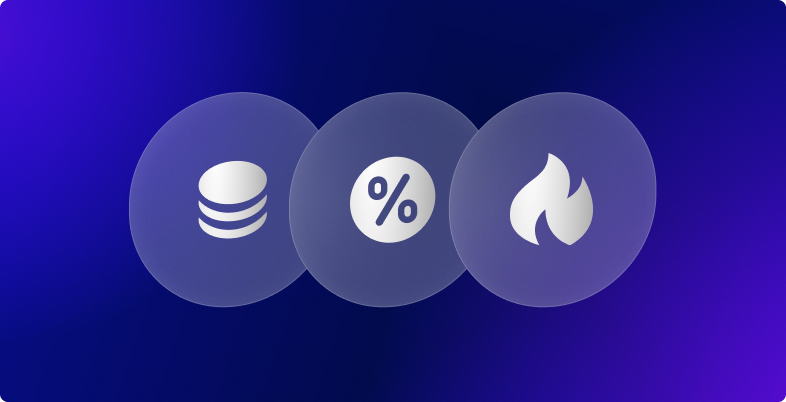Investment Banking vs Proprietary Trading Firm: Career Paths and Job Security on Wall Street


Investment banking and proprietary trading are two prominent areas within the financial sector, each offers unique roles and opportunities for career advancement. Investment banking refers to a specific segment of banking operation that helps individuals or organizations raise capital and provide financial consultancy services. Investment banks act as intermediaries between security issuers and investors and help new firms go public. Proprietary trading, or prop trading, occurs when a firm or bank invests for direct market gain rather than earning commission dollars by trading on behalf of clients. This direct approach to financial markets emphasizes making profits from market movements and the spread between buy and sell prices.
Understanding the differences between investment banking and prop trading is crucial for professionals considering a career in finance because each path offers different challenges and rewards. Investment bankers typically deal with client relationships, deal structuring, and strategic financial advice, which requires a solid background in finance, economics, and excellent interpersonal skills. On the other hand, prop traders are more focused on the markets, utilizing complex quantitative models and strategies to earn profits from short-term fluctuations in asset prices. Their roles depend heavily on risk assessment, mathematics, and the ability to adapt to rapidly changing conditions.
Picking one between these two career paths in Finance depends a lot on one’s personal interests, desired work environment, and long-term career goals. Investment banking might appeal to those who enjoy structured environments and complex financial deals with high-profile clients, offering a clear hierarchical advancement path. At the same time, prop trading suits those who thrive in dynamic settings where performance directly impacts compensation and career progression.

When it comes to financial services, the nature of work at an investment bank versus a prop trading firm showcases stark differences. At a typical investment bank like Goldman Sachs, professionals engage in a range of financial services including orchestrating mergers and acquisitions, managing IPOs, and providing strategic advisory services to clients. This involves complex deal structuring and navigating regulatory landscapes. On the other hand, prop traders focus on leveraging the firm’s capital to trade financial instruments, aiming to capitalize on market inefficiencies and fluctuations as soon as the markets open.
The skills required in these two sectors are tailored to their specific demands. Investment banking jobs on Wall Street demand a strong foundation in accounting, comprehensive business acumen, a strong economic background, and adeptness in client-facing roles. A degree in finance or an MBA is often seen as essential, along with robust analytical skills and the ability to perform under pressure during long hours. In contrast, prop trading prioritizes a good domain of math and quick decision-making ability, with a strong emphasis on quantitative analysis to predict market trends and really good risk-management abilities.
The workplace environment also varies notably between the two. Investment banks operate in a structured and hierarchical setting, often characterized by a formal atmosphere on the trading floor or in client meetings. Career advancement follows a clear path from analyst to associate and beyond, with each promotion bringing greater responsibility and prestige. Prop trading firms often involve intensive desk trading, requiring professionals to maintain a high level of discipline and focus, especially when markets are volatile
Regarding career prospects, both paths offer significant opportunities for smart people to advance in their careers. Investment banking is highly reputable, offering a path filled with prestige and the potential for high-profile networking and jobs in big banks. Prop trading may not carry the same level of societal prestige but can be extremely rewarding for those who excel, with less of a rigid hierarchy and more flexibility in career progression.
When it comes to compensation, both fields offer lucrative prospects but with different structures influencing bonuses and salary. Investment bankers typically receive a steady salary with bonuses reflecting both their performance and the overall success of the firm, particularly noticeable in sales and business development roles. In prop trading, compensation is directly tied to performance, with bonuses forming a substantial part of the income based on profits generated from trading activities. This direct correlation between performance and reward makes prop trading particularly attractive for those who are highly skilled and really really like trading.
Investment banking is a pivotal component of the financial services sector, offering several advantages. For undergraduates and recent graduates, internships in investment banking provide a robust opportunity for learning and gaining exposure to complex financial transactions and client management. This can significantly enhance your resume and provide a better idea of the industry dynamics. On average, investment bankers tend to have higher initial salaries and the potential for substantial bonuses, reflecting their contribution to the overall firm’s success. The role also comes with the prestige of working for reputable firms and opportunities for rapid advancement to senior positions.
The disadvantages are also notable, however. The stress levels in investment banking are notoriously high, primarily due to the long hours of work and the demanding nature of the job, where markets don’t close mentally for those involved. This can lead to a work-life imbalance that isn’t suitable for everyone. Moreover, the hierarchy within banks can mean that younger employees, like analysts, often experience a slower decision-making process and may feel like “just another guy” in the firm without significant influence until they reach more senior levels.
Proprietary trading compares favorably in terms of autonomy and the capacity to generate direct profits from market movements. Traders often enjoy a relatively dynamic work environment where performance directly influences compensation, giving a clear and immediate sense of the impact of their work. This can be especially appealing to those who are driven by results and enjoy a less structured environment than what is typically found in investment banking.
Proprietary trading also has its disadvantages. The stress associated with constantly fluctuating markets can be intense, and since traders essentially manage their own profit and loss daily, the pressure to perform is constant. This environment doesn’t suit everyone, especially those who prefer a more predictable and steady career path. Moreover, while prop trading can be lucrative, the income is highly variable and can differ drastically from one year to another, depending on market conditions and trading success. In terms of career progression, there’s less of a defined path compared to the clear hierarchical structure in investment banking, which might be a deterrent for those who value a more traditional career advancement route.
Choosing between a career in investment banking or proprietary trading depends significantly on your personality type and career goals. For those who thrive in structured environments and are looking for long-term career advancement with a clear path, investment banking might be the most suitable choice. This field offers the chance to develop extensive networks and cultivate relationships that can be beneficial for moving up the corporate ladder. Those who are adept at handling high-pressure situations and long hours, and who possess strong analytical skills, might find this path rewarding. The interview process in investment banking is rigorous, providing an excellent opportunity to demonstrate your suitability for this high-stakes world.
On the other hand, proprietary trading is ideal for those who prefer autonomy and have a strong aptitude for mathematics and quick decision-making. This field is less about climbing a corporate ladder and more about performance-based rewards. If you enjoy working independently and are comfortable with high-risk, high-reward scenarios, this might be the right path. Prop trading offers more flexibility in terms of work style and can be very lucrative, particularly for those who are skilled at navigating volatile markets. The exit opportunities from prop trading are also varied, as the skills acquired can be easily transferred to other financial sectors or even to starting your own trading firm in the future.
Besides considering these factors, prospective finance professionals should seek out more information to make the best decision for their own career path. If you’re leaning towards proprietary trading, checking out the article The Ultimate Guide to the Best Prop Trading Firms in 2023-2024 – SabioTrade by Nikita Mazikov can provide valuable insights into the top firms in 2024 and what to expect in your career in prop trading.

The key differences when it comes to investment banking vs proprietary trading revolve around the nature of the work, the skills required, and the career trajectory. Investment banking, with its structured environment and reputation for prestige, demands excellent analytical and interpersonal skills, suited for those who seek a clear hierarchical progression within a company. On the other hand, proprietary trading appeals to those who favor independence and excel in quantitative analysis, offering a more flexible but high-pressure environment, where performance directly impacts earnings.
It is crucial for individuals to carefully consider their personal strengths and career priorities. Each path offers unique rewards and challenges, and the right choice depends heavily on one’s professional aspirations and lifestyle preferences. We encourage you to thoroughly explore each option and seek out different resources to gather insights that will help you answer these important questions. Whether you see yourself thriving in the bustling atmosphere of an investment bank or prefer the dynamic nature of trading heavily until markets close, understanding these differences is key to making a decision that aligns with your long-term goals.
1. What is investment banking?
Investment banking involves providing advisory services and financing to corporations, governments, and other entities. This can include underwriting new debt and equity securities, aiding in mergers and acquisitions, and handling IPOs.
2. What is proprietary trading?
Proprietary trading refers to when a firm trades stocks, bonds, currencies, commodities, derivatives, or other financial instruments with its own money as opposed to its customers’ money, to make a profit for itself.
3. How do the day-to-day activities differ in investment banking vs prop trading?
In investment banking, the day-to-day involves a lot of client interaction, financial modeling, presentations, and deal structuring. In contrast, prop trading involves analyzing market conditions, managing trades, and developing strategies to capitalize on short-term market movements.
4. What skills are essential for success in investment banking vs prop trading?
Investment banking requires strong analytical skills, attention to detail, and robust interpersonal skills. Prop trading demands strong quantitative abilities, risk management skills, and the capacity to make decisions fast.
5. How do the work environments compare between the two?
Investment banking typically involves a structured environment with long hours, particularly when closing deals. Prop trading can also involve long hours but tends to have a more flexible atmosphere, focused heavily on market operations.
6. What are the career prospects in investment banking vs prop trading?
Investment banking offers a clear career path with hierarchical progression from analyst to managing director. Prop trading does not have a strict hierarchy; advancement is based more on performance and can vary widely between firms.
7. How does compensation compare between investment banking and prop trading?
Both fields can be very lucrative. Investment bankers often earn a base salary with substantial bonuses tied to the performance of their deals and their group. Prop traders typically earn a base salary with a bonus that is directly tied to their trading profits.
8. What type of personality is better suited for investment banking?
Detail-oriented individuals, who enjoy working in a team, and can handle the stress associated with high-stakes deal-making often thrive in investment banking.
9. What type of personality is better suited for proprietary trading?
Those who enjoy analyzing data, are comfortable with significant risk-taking, and prefer working independently may find proprietary trading more fulfilling.
10. How should someone decide between a career in investment banking or proprietary trading?
It’s important to consider personal interests, desired work-life balance, risk tolerance, and career ambitions. Understanding the nature of each field and reflecting on how these align with personal and professional goals will guide this decision.